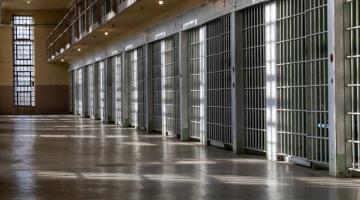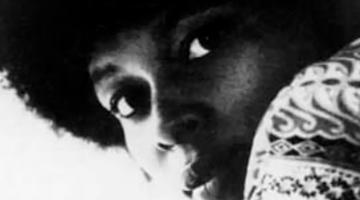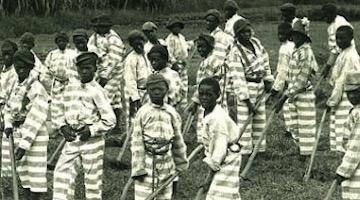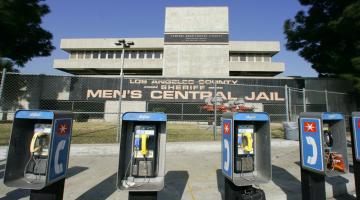BAR Book Forum: Fikile Nxumalo’s “Decolonizing Place in Early Childhood Education”
The author rejects ways of teaching that distort Black young people’s relationships with the natural world.
“The book offers possibilities for how Black and Indigenous place relations can be at the center of teaching and learning.”
In this series, we ask acclaimed authors to answer five questions about their book. This week’s featured author is Fikile Nxumalo. Nxumalo is faculty in the Department of Curriculum, Teaching and Learning at the Ontario Institute for Studies in Education, University of Toronto. Her book is Decolonizing Place in Early Childhood Education.
Roberto Sirvent: How can your book help BAR readers understand the current political and social climate?
Fikile Nxumalo: I see this book as contributing to work that has made visible the inseparability of environmental concerns from other socio-political conditions. This book shows how this inseparability is relevant to early childhood education. For instance, early childhood education remains steeped in romanticized notions of children, nature, and their inter-relationships. Environmental for young children also remains dominated by human centered, Western science learning. In the book I am attempting to simultaneously unsettle discourses of childhood innocence (and their inherent racialization), and the dominant ways in which environmental education is typically approached in North American contexts.
In bringing forward possibilities for “unsettling pedagogies,” the particular socio-political conditions that I am interrogating are anti-blackness and settler colonialism by offering an understanding of how these conditions shape environmental and place-based education in early childhood education. I also offer possibilities for how Black and Indigenous place relations can be at the center of teaching and learning that is concerned with firmly situating environmental education within current conditions of environmental precarity.
What do you hope activists and community organizers will take away from reading your book?
Children and youth have been involved in activisms on environmental concerns for a long time. The work of Mari Copeny in Flint, Michigan and Autumn Peltier are two examples of the important work being done by Black and Indigenous youth in advocating for clean water protection. What I hope is that this book serves as another reminder of the importance of activisms that pay attention to young people’s relationships with and perspectives on the environmentally damaged places that they inhabit, especially children from Black and Indigenous communities whose environmental relations are often constructed in deficit and/or essentialist ways. I also hope that this book also can contribute to activisms within the field of education that are aimed at transforming the field such that it prioritizes educating for environmental justice and educating for reciprocal rather than extractive relationships with the environment. The recent call for educators to respond to the climate crisis is one example of such activisms that have been recently mobilized.
We know readers will learn a lot from your book, but what do you hope readers will un-learn? In other words, is there a particular ideology you’re hoping to dismantle?
Anti-blackness and settler colonialism in environmental education for young people are two ideologies that I am hoping to dismantle. Antiblackness emerges in environmental education for example, through the positioning of environmental education for Black children and youth as a way to ‘fix’ children such as by improving academic outcomes. Exposure to environmental education for these young people is also commonly positioned as a form of rescue from the neighborhoods they inhabit, and to help them develop “normal” relations with nature. This is problematic for many reasons, including the erasure of Black land relationships, including those that exist in urban spaces. Drawing from scholarship in Black geographies, this book aims to refuse deficit constructions of Black young people’s relationships with the natural world. Settler colonial ideology in environmental and place-based education emerges through the persistence erasure of Indigenous peoples, lands and knowledges. In the book I work with refiguring presences as a theoretical concept and as pedagogical practices that counter settler colonial ideology in these educational spaces. For example, drawing from my work with children and educators in what is now British Columbia, Canada I illustrate the decolonial potential of situated Indigenous place stories that affirm Indigenous land, life, and relations, and foreground intrinsic relationality with the more-than-human.
Who are the intellectual heroes that inspire your work?
I am hugely inspired by Dr. Leanne Betasamosake Simpson (Michi Saagiig Nishnaabeg) and Dr. Eve Tuck (Unangax) whose work teaches me about the imperative of Indigenous presence in education research that engages questions of environment, place, land and climate change futures. I am also inspired by the work of Dr. Katherine McKittrick which teaches me to continually attend to place-based and environmental education in ways that resist what she terms as the deeming of Black people as “ungeographic.” Finally, the work of Dr. Affrica Taylor and Dr. Veronica Pacini-Ketchabaw in childhood studies inspires me to continually make visible the inadequacy of individualistic, developmental approaches in the education of children inheriting increasing precarious worlds.
In what way does your book help us imagine new worlds?
In the book I bring practices and concepts from Indigenous and Black feminisms that not only unsettle anti-black and settler colonial ideologies in early childhood education, but also provide openings for imagining ‘otherwise’ early childhood pedagogies, particularly for Black, Indigenous and Black-Indigenous children living and learning in North American contexts. The speculative, creative, storied and relational pedagogies that I bring forward in the book have potential to activate re-imaginings of the current socio-political world and its oppressions. For example, in the book I discuss how Black feminist practices of testifying-witnessing might be put to work to orient educators towards (re)storying (including through stories co-created with children) places in ways that situate Black children in places, including “nature” in ways that unsettle deficit or absented depictions of Black children. Another example discussed in the book, is Indigenous feminist practices of radical relationality. My hope is that thinking-with and enacting these practices can inspire educators to imagine what it might look like in their particular contexts to teach and learn with young children in ways that disrupt human centric and extractive relations with the more-than-human world. So my hope is that such practices can inspire imaginaries of decolonial worlds that sustain Indigenous and Black life alongside more-than-human life.
Roberto Sirvent is Professor of Political and Social Ethics at Hope International University in Fullerton, CA. He also serves as the Outreach and Mentoring Coordinator for the Political Theology Network. He is co-author, with fellow BAR contributor Danny Haiphong, of the new book, American Exceptionalism and American Innocence: A People’s History of Fake News—From the Revolutionary War to the War on Terror.
COMMENTS?
Please join the conversation on Black Agenda Report's Facebook page at http://facebook.com/blackagendareport



















